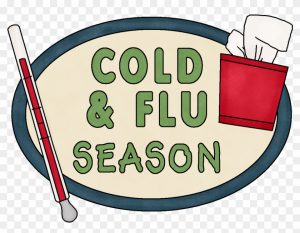 Cold and flu season is upon us. Sara Little, M.D., a pediatrician who is Minisink Valley’s medical director, wants to share these important reminders on how to ensure your household is best prepared.
Cold and flu season is upon us. Sara Little, M.D., a pediatrician who is Minisink Valley’s medical director, wants to share these important reminders on how to ensure your household is best prepared.
“Make sure you’re ready now for whatever your family may encounter,” said Dr. Little. “We want our Minisink Valley families to be best prepared to deal with cold and flu. And as an important reminder, please keep your children home if they exhibit cold, flu or COVID-19 symptoms.”
Consider a flu vaccine
Consider getting a yearly flu vaccine, an important step in preventing the flu. The flu vaccine can protect you against the most common strains of the flu and can be administered any time during flu season. Flu shots are available at your physician’s office or local pharmacies.
Stock your medicine cabinet
Stock your medicine cabinet before anyone gets sick. Properly discard expired medications and replace/replenish what’s needed. This may include fever and pain relief medicines, decongestants, antihistamines, cough medicines, nasal sprays, cough drops or throat lozenges. Always check with your physician if you have a chronic medical condition or your child’s physician for any clarifications you need or want.
Stock up on related health supplies
Make sure you have a good, working thermometer, possibly a humidifier and basics such as tissues, hand sanitizers and anti-bacterial soaps in your home.
Have drinks and foods on hand
Fluids are important when for anyone with a cold or flu to avoid dehydration. Water is the best choice, but herbal teas or fruit juices are also helpful. Consider keeping non-perishable foods stocked (i.e. soups or ice pops) which are easy to prepare.
Practice proper hand washing
Proper hand washing is one of the most effective ways to prevent colds and flu. Reminder: proper hand washing includes the use of warm water and anti-bacterial soap and washing hands for 20 seconds, giving special attention to under finger nails and jewelry.
Don’t spread germs
If you’re healthy, stay away from sick people as much as possible. If you get sick, keep your germs to yourself. For example, know the proper way to sneeze and discard used tissues. Do as much as you can to limit contact with others.
Keep hands away from your face
Keep hands away from your face and particularly avoid touching eyes, nose and mouth. These are the areas where cold viruses gain entry into your system.
Practice healthy living habits
Eat a balanced diet of fresh foods and healthy proteins. Stay hydrated with water. Exercise regularly and get enough sleep.
Keep household surfaces clean
Cleaning household surfaces with disinfectants will kill cold and flu germs, which live longer on hard, non-porous surfaces.
Plan for sick day needs
If you work outside the home, have a plan for sick days. Don’t go to work sick, and don’t send your children to school if they’re sick.
